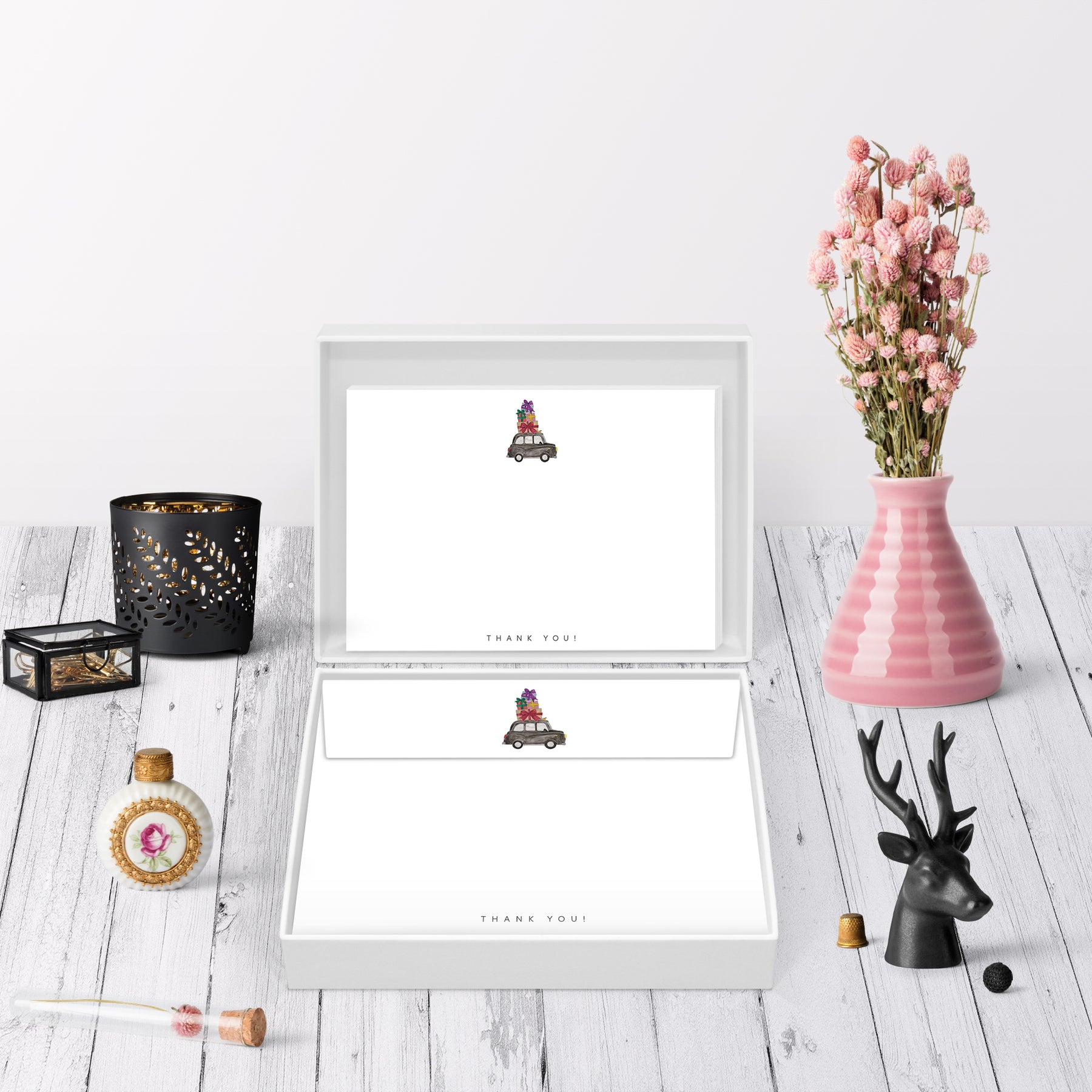If you are wondering how to write a meaningful thank you message, you have come to the right place. We have written this article to guide you through writing thank you notes that are sincere and considerate.
In today’s fast-paced world, sending a thank you message can have a profound impact on its recipient. Whether it's for a kind gesture, a special gift, or during significant life events, a well-crafted thank-you message is not just about etiquette; it's about creating lasting connections and memories.
At Me Loovely, we understand the art of expressing thanks with elegance and sincerity. Read on to discover 12 helpful tips that will help to inspire you when writing your next thank you message.

1. The Essence of a Thank-You Message
Every thank-you note should capture the essence of gratitude. Start with a direct "Thank you" for the specific act or gift. This straightforward approach lays a strong foundation for the remainder of your message.
2. Personalise Your Message
Reflect on the relationship you share with the recipient and let that guide the tone of your thank you note. Share a specific detail about how their gift or action made a difference to you and be as personal as possible.
3. Warm Closings
We’d always recommend ending your message with warmth. Phrases such as "Warmly," "With appreciation," or "With heartfelt thanks" add a lovely touch to the end of your thank you note.
4. Thank-You Messages for Friends and Family
For those closest to you, your message can be informal and heartfelt. Share anecdotes or inside jokes that resonate with your shared experiences. This will help to make your note more personal to the recipient.
5. Professional Thank-Yous
In a professional context, keep your message concise and formal. Acknowledge the specific help or opportunity given and express how it has aided your professional growth or project. It is important to not be too personal and remain friendly but professional in this instance.
6. Thanking Acquaintances
For people you don't know well, a polite and courteous thank-you is most appropriate. Acknowledge their effort or kindness briefly and sincerely.
7. Special Occasions
Weddings, birthdays, and other special events call for a more detailed message. Share how their presence or gift added to the joy of the occasion. It is common place in the UK for individuals to send thank you cards after a special event.
8. Sympathy and Support
When thanking someone for support during challenging times, express your appreciation for their kindness and empathy. Let them know how their support has helped you to get through that difficult period in your life.
9. The Impact of a Thank-You
A thank-you note is more than just words; it's an expression of your relationship and respect for the recipient. It's a reflection of your character and an opportunity to make your relationship with the recipient stronger
10. Craft Your Message with Care
Take time to craft your message. A rushed note can feel impersonal. Remember, it's not just about acknowledging a gift or gesture; it's about valuing the person behind it. A handwritten message penned on letter writing paper goes a long way, it shows that you are sincere and have put thought and effort into thanking the recipient.
11. Including a Personal Touch
Add a personal touch to your thank-you note. This could be a reference to a shared experience, a compliment, or a note of anticipation for future interactions. You could also send your thank you message on personalised stationery to express feelings in an extra special way.
12. Embracing Cultural Nuances
Be mindful of cultural nuances in expressing thanks. What's considered polite in one culture might be different in another. Be sure to research the culture of the recipient before penning your message.
Luxury Thank you cards from Me Loovely
At Me Loovely, we believe that every expression of gratitude, no matter how small, contributes to a loovelier world. Through our guide, we hope that we have inspired you to spread joy and appreciation in your personal and professional life.
Remember, a thank-you message is more than just words on paper; it's a reflection of your personality and feelings.
FAQs
1. When is the best time to send a thank you note in the UK?
Within 1 week for small gestures; up to 2–3 weeks for big occasions like weddings.
2. Is it still expected to send handwritten thank you cards, or is email/text okay?
Handwritten cards are best, but email/text works for casual or quick thanks.
3. What do I write in a thank you message for a gift I didn’t like?
Focus on the thought, not the gift: “Thank you for thinking of me, it means a lot.”
4. Do I need to send separate thank you cards for couples or households?
One joint card is fine—just mention both names.
5. How long is too late to send a thank you note?
Up to 3 months is acceptable; better late than never.
6. How formal or informal should a thank you message be?
Match the tone to the relationship—warm for family, professional for work.
7. What are good ideas for special occasion thank you messages?
-
Weddings: thank for presence and gift.
-
Baby showers: thank for support and baby gift.
-
Funerals: thank for kindness and sympathy.
8. Is it okay to acknowledge a gift in person and skip a written thank you?
Yes for small gestures, no for formal events or money gifts.
9. Should children write their own thank you notes?
Yes, once they can write; younger kids can draw or dictate.
10. Do I need to mention the exact gift or money in my thank you?
Yes, mention the gift to make it personal and sincere.






